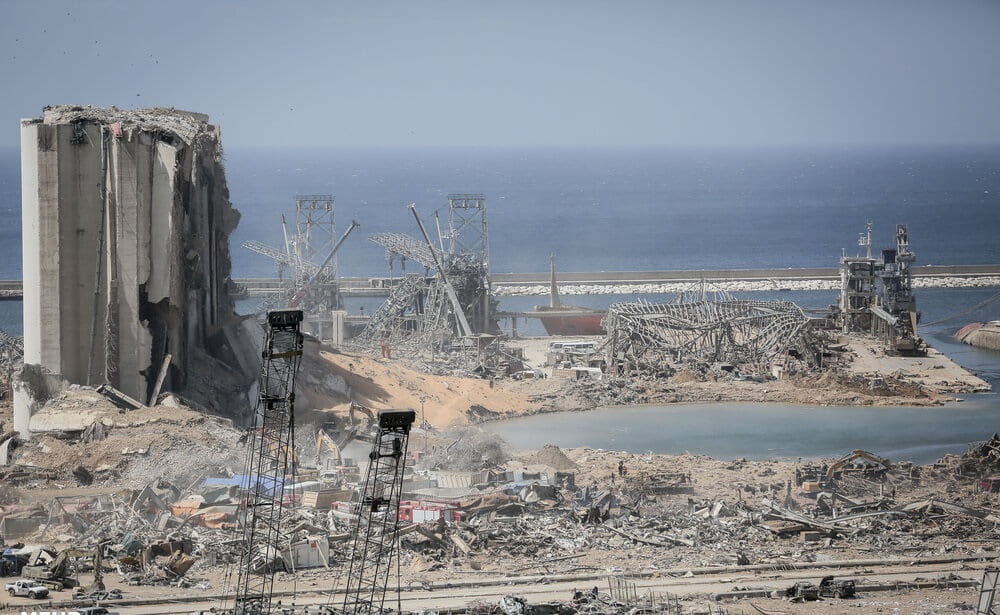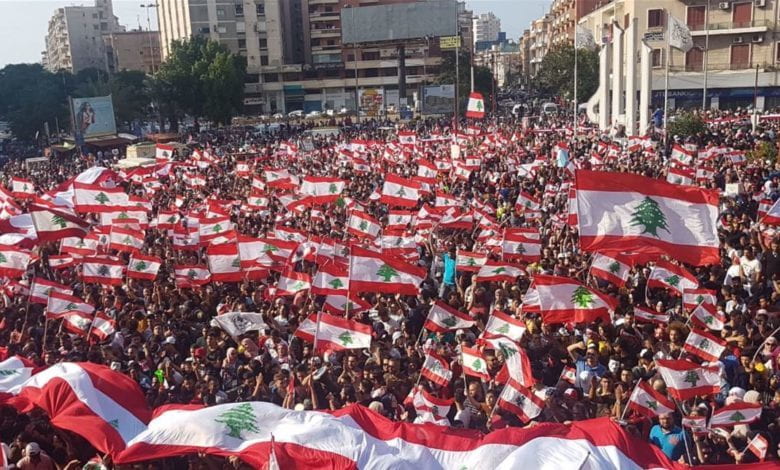The recent explosion of the port in Beirut, Lebanon has garnered widespread international attention. While it is still unknown what caused this explosion, two things are known: explosive material had been stored there for years, and the Lebanese government was aware of this fact. For many years now, both government corruption and negligence have been causing human rights abuses felt across all Lebanon, so the explosion in Beirut, while one of the deadliest manifestations of this corruption and negligence, is no anomaly.

The Lebanese Government
To understand the culture and politics of Lebanon, it is important to understand the way the Lebanese government is set up. When Lebanon first gained independence, the government was divided up so that the several religions in the country would be represented in the government. To do this, it was decided that the President would be a Maronite Christian, the Speaker of the Parliament would be a Shia Muslim, and the Prime Minister would be a Sunni Muslim. In principle, this was a good way of ensuring political representation for each group. However, many problems have occurred because of this. Today, each religious group defends their own government representatives without holding them accountable for their corruption and negligence, and instead blame other groups’ politicians and representatives when problems arise in Lebanon. This has not only allowed for corruption to go unchecked, but it has also caused the divisiveness and sectarian conflict that has become characteristic of Lebanese society.
Government Corruption
While the extent of government corruption has been mostly speculative, an accusation leveled against one of the top politicians in Lebanon last fall seemed to confirm many Lebanese citizens’ suspicions about Lebanese politicians’ corruption. The politician in question is Najib Mikati, previous Prime Minister of Lebanon. Mikati is Lebanon’s richest man, with an estimated net worth of $2.5 billion. Many people have alleged that this accumulation of wealth could only have been the product of illegal activity, and this allegation seemed to be confirmed in October 2019, when a prosecutor pressed charges against Mikati, accusing him and his family of stealing millions of dollars that were meant to be used as housing loans for low and middle-income Lebanese citizens. Despite the fact that Mikati denied this accusation and it has yet to be shown to be true, the accusation was enough to gain traction among the citizens of Lebanon, who used this as conclusive proof of widespread government corruption. While this is only one instance, most of the politicians in Lebanon are millionaires, which leads many to believe that all are involved in some form of corruption.
Economic Decline and Revolution of 2019
While government corruption is in and of itself a problem, this corruption has also had negative ramifications on the economy; it has been argued that it is the primary cause of the steep decline in Lebanon’s economy. In 2018, economic growth for Lebanon was just 0.2 percent, with a 30 percent unemployment rate for youth, and due to these conditions, citizens of Lebanon were becoming increasingly critical of the quality of life in Lebanon, with many explicitly blaming politicians. In an attempt to improve the economy, Lebanese politicians began imposing taxes on many different commodities. While this angered many people, the revolution of 2019 did not begin until the government imposed a tax on WhatsApp, a free messaging service popular in the Middle East. It must be understood that the revolution was not just about the WhatsApp tax, as this was merely one of many contributing factors. In reality, much of the anger that spurred the revolution was due to both the dire conditions in Lebanon and the Lebanese government’s decision to place the burden of fixing the economy on the citizens, despite the fact that the politicians’ own corruption is what has led Lebanon to the brink of collapse.

Coronavirus Impact
While government corruption is to blame for the bleak conditions in Lebanon, the coronavirus has only further exacerbated these issues. Since the first outbreak in Lebanon, there have been several lockdowns, all of which have negatively impacted the economy. The most damaging impact has been the devaluing of the Lebanese Pound, which was already losing much of its value before the pandemic, but has now lost over 75 percent of its value. The devaluing of the currency not only bears negative consequences on the health of the Lebanese economy as a whole, but it has also made it impossible for many in Lebanon to afford basic necessities. As a result of the devaluing of the currency, prices of medicine, food, and rent have all increased exponentially, nearly 40 percent of the population has been pushed below the poverty line, and almost one million people have insufficient access to food.
Explosion of the Port of Beirut
On August 4, 2,750 tonnes of explosive material improperly stored at the port of Beirut exploded, completely destroying the port and surrounding areas. Until today, it is unknown what caused the explosion, but it has since been revealed that the government was warned about this material almost six years ago and were even warned by security officials to remove the material a few weeks before the explosion. The fact that the government initially stored 2,750 tonnes of explosive material near a residential area and for years ignored warnings to confiscate this material attests to the level of negligence that the government has towards its citizens and its country. To say that the government’s negligence has devastated Beirut would be an understatement; at least 171 people have died, thousands are injured, and over 300,000 are now homeless. Since the explosion, the Prime Minster has resigned, protesters have returned to the streets, and Lebanese citizens are now determined to see the fall of the government. There are many uncertainties in the aftermath of this explosion, but one thing is certain for most, if not all, Lebanese people: the Lebanese government is solely to blame for this tragedy.
Due to government corruption and negligence, Lebanon has been slowly moving towards total collapse. As the country reels further into political, social, and economic unrest, the people of Lebanon have become more and more convinced that the government is not concerned with either their protection or livelihood. However, this is not the first time the Lebanese people have suffered at the hands of their government, and for this reason, voices of resilience and hope are ringing through the streets of Lebanon; just as the people of Lebanon have overcome other hardships before, they have a conviction that they too will overcome this. As a testament to this, many Lebanese people have been calling Beirut a phoenix, for despite the destruction caused by the explosion, the citizens of Lebanon believe that Beirut will rise from the ashes.
